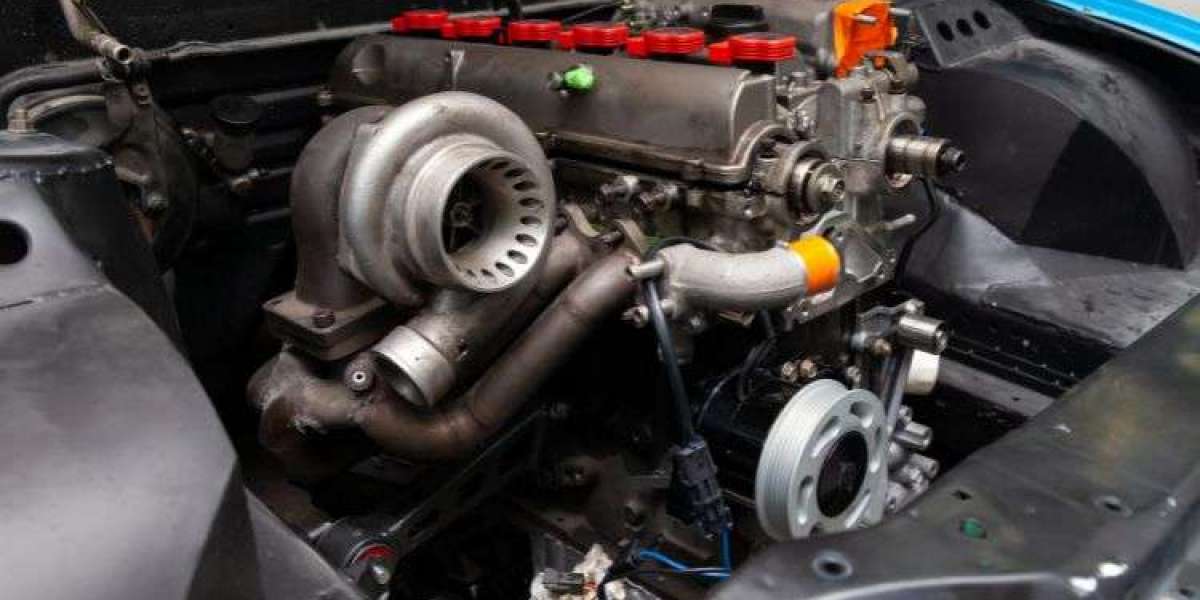The automotive industry is in the midst of a transformative shift towards electric vehicles (EVs), driven by the need for cleaner, more sustainable transportation solutions. In this transition, electric turbochargers are emerging as a key technology, poised to revolutionize the performance and efficiency of EVs. The global automotive electric turbocharger market size is projected to grow at a compound annual growth rate (CAGR) of 12.1% between 2024 and 2032, with North America, Europe, and Asia leading the way. This growth is propelled by the turbocharger's ability to deliver more power, better efficiency, and reduced lag in power delivery. In this comprehensive exploration, we delve into the intricacies of electric turbochargers, examining their functionalities, advantages, integration challenges, environmental impact, market trends, and future outlook.
Understanding Electric Turbochargers
Traditional turbochargers have long been integral to enhancing the performance of internal combustion engines by compressing air and delivering it to the engine's intake manifold. However, with the advent of electric vehicles, traditional turbochargers face limitations, particularly in the context of instant torque delivery and efficiency. Electric turbochargers, on the other hand, leverage electric motors to compress air, eliminating the need for exhaust gas-driven turbines. This enables electric turbochargers to deliver instantaneous torque and power, addressing the inherent limitations of traditional turbocharger systems. By harnessing electric power, electric turbochargers offer seamless power delivery, significantly reducing turbo lag and enhancing overall performance.
Advantages of Electric Turbochargers in EVs
The integration of electric turbochargers into EVs offers numerous advantages. Firstly, electric turbochargers enhance acceleration and torque, providing a more exhilarating driving experience. Unlike traditional turbochargers, which rely on exhaust gases to spin the turbine, electric turbochargers deliver instantaneous power, eliminating turbo lag and ensuring rapid throttle response. This instantaneous power delivery translates to improved performance and responsiveness, enhancing the overall driving dynamics of EVs. Furthermore, electric turbochargers contribute to improved efficiency by optimizing power delivery and reducing energy wastage. This combination of enhanced performance and efficiency makes electric turbochargers a compelling technology for EV manufacturers and consumers alike.
Integration Challenges and Solutions
Despite their advantages, the seamless integration of electric turbochargers into EVs poses certain challenges. One of the primary challenges is power management, as electric turbochargers require a significant amount of electrical power to operate efficiently. Moreover, the integration of electric turbochargers into the existing powertrain architecture of EVs necessitates careful system design and thermal management to ensure optimal performance and reliability. To address these challenges, automotive manufacturers are leveraging advancements in technology and engineering solutions. For instance, regenerative braking systems can harness kinetic energy to recharge the battery and power electric turbochargers, optimizing energy utilization and improving overall efficiency. Additionally, sophisticated control algorithms and thermal management systems are employed to regulate power delivery and manage heat dissipation, ensuring the seamless operation of electric turbocharger systems in EVs.
Environmental Impact and Sustainability
In addition to their performance benefits, electric turbochargers play a significant role in advancing environmental sustainability within the automotive industry. By optimizing power delivery and enhancing efficiency, electric turbochargers contribute to the overall reduction of carbon emissions associated with EVs. This aligns with the broader goals of sustainability and environmental stewardship driving the EV revolution, positioning electric turbochargers as a key enabler of greener transportation solutions. Furthermore, the increased efficiency provided by electric turbochargers enables EVs to cover longer distances on a single charge, reducing the overall carbon footprint of electric mobility.
Market Trends and Future Outlook
The market for automotive electric turbochargers is witnessing rapid growth, fueled by the increasing demand for high-performance and efficient EVs. With key markets in North America, Europe, and Asia driving this growth, manufacturers are investing heavily in research and development to capitalize on this burgeoning opportunity. As advancements in electric turbocharger technology continue to accelerate, the future outlook for the market remains promising, with electric turbochargers poised to redefine automotive performance standards and drive the widespread adoption of electric propulsion systems. Moreover, the integration of electric turbochargers into mainstream EV models is expected to become increasingly common, further fueling market growth and innovation in the coming years.
Case Studies and Examples
Several automotive manufacturers have already embraced electric turbocharger technology, integrating it into their latest EV models to deliver unparalleled performance and efficiency. For example, [insert specific case studies or examples here, highlighting the performance improvements and consumer feedback associated with electric turbocharged EVs]. These case studies serve as tangible examples of the transformative impact of electric turbochargers on EV performance and highlight their growing significance in the automotive industry.











